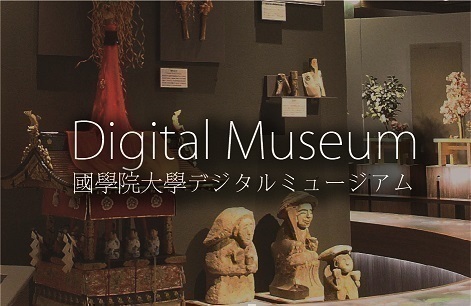- トップ
- Encyclopedia of Shinto
- Murata Harumi
Encyclopedia of Shinto
| Main Menu: | |
| Links: |
詳細表示 (Complete Article)
| カテゴリー1: | 8. Schools, Groups, and Personalities |
|---|---|
| カテゴリー2: | Personalities |
| Title | Murata Harumi |
| Text | (1746-1811) Scholar of National Learning (kokugaku) of the mid-Edo period, and disciple of Kamo no Mabuchi. Born the second son of Murata Harumichi, a dried sardine merchant in the Nihonbashi district of Edo, his original lineage name was Taira. His common names were Heishirō, Jihei, and Denzō, his style was Shikan, and his epistolary names included Nishigorinoya and others. Harumi studied the Chinese classics under Hattori Chūei, Udono Shinei, and Minagawa Kien, and was also an active poet. He inherited the leadership of the Saka family, officially sponsored linked-verse (renga) poets, but following the death of his elder brother Harusato, he instead returned to become heir of his own family. However, as Harumi lived as one of the famous jūhachi daitsū, or Eighteen Big Men, a group of worldly Edo merchants famous at that time, the excesses of his grandiose lifestyle led to the collapse of his family's business, one of Edo's greatest commercial fortunes of the day. After this, he devoted himself to the study of kokugaku and poetry, supported by the assistance of such fellow students of Kamo no Mabuchi as Katō Chikage and Matsudaira Sadanobu (lord of Shirakawa Domain), and thereafter he attracted many disciples. In particular, Matsudaira Sadanobu conferred on Harumi the equivalent of an annual "five-man rice stipend" (gonin fuchi). Harumi's learning was characterized by his sophisticated understanding of Chinese classics joined with a refusal to eliminate those elements from his Japanese kokugaku. He was greatly interested in the study of Japanese language, particularly kana orthography, though his poetic style departed from his mentor Kamo's focus on Manyōshū forms, and instead formed the foundation of a school promoting poetics in the style of the Kokin wakashū (Collection of Ancient and Modern Japanese Poems). His many prominent students included Kiyomizu Hamaomi, Kishimoto Yuzuru, and Oyamada Tomokiyo. He died on the thirteenth day of the second month of 1811 at the age of sixty-six. He was the author of Wagaku taigai (Great Survey of Japanese Literature), Gojūon bengo (Treatise on Fifty Mistaken Readings), and Nishigorinoya zuihitsu (Essays by Nishigorinoya), among other works. - Furusō Masami |




